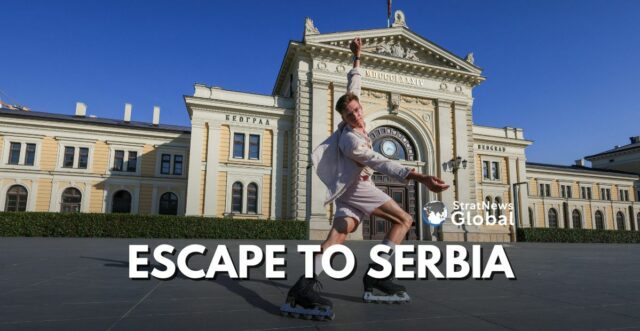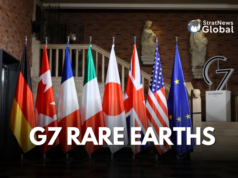Since war began in Ukraine in February 2022, Russians fleeing conflict, conscription or the politics of President Vladimir Putin, have established a vibrant community in Serbia, according to interviews with two dozen immigrants and local officials.
While the actual number of Russians in Serbia is smaller than those who have fled to countries such as Germany, their presence is acutely felt in Belgrade, a city of less than two million people.
Russian Clientele
Vadim Morus, a Russian professional ice skater, fled Russia with his fiancée in 2022 following Russia’s invasion of Ukraine. Many Russians, including Morus, relocated to Serbia for its cultural and historical ties to Moscow.
“There are few ice skaters in Serbia who can train others, so I have plenty of Serbian students,” Morus, 24, said.
Morus’s fiancée elaborated on their reasons for leaving Russia: “We left due to ideological reasons. A few days after February 24, we were trying to understand what was happening, and then we decided to leave.”
Russian-owned clubs, kindergartens, and medical practices have sprung up. Russians buy food in Russian shops. Russian bands, singers and comedians are performing in Russian clubs, and Russian artists showcase their work in Russian-owned galleries.
Viktor, 42, a veterinarian from St. Petersburg, fled Russian mobilisation in the fall of 2022. Without the necessary qualifications to practise in Serbia, he works as a handyman in Belgrade, exclusively serving Russians.
Between February 2022 and mid-2023, more than 30,000 Russians registered for temporary residence in Serbia, the latest interior ministry data show. Officials did not provide data for the comparative period before this but said that the numbers represented a sharp increase.
During this influx, Russians established 11,081 businesses across various sectors, from internet-based services to hospitality and sports schools, according to Serbia’s business registry.
Serbia-Russian Relations
Relations between Serbia and Russia date back centuries and remain cordial today, although Serbia is also trying to join the European Union, which condemns Russia’s invasion of Ukraine.
After World War I, thousands of so-called White Russians fled the Communists during the civil war to the newly formed Kingdom of Serbs, Croats, and Slovenes.
Maintaining Cultural Identity
Still, many struggle to integrate and prefer instead to cling to a mini Russia inside Serbia. Ironically many Serbians support Putin and do not share the views of those who fled.
“The call of Russian culture is too strong for Russian emigrants in the first generation to even want to fit into the society in which they found themselves, regardless of whether it is Serbian or Western,” said Belgrade-based political scientist Aleksandar Djokic.
(With input from Reuters)





